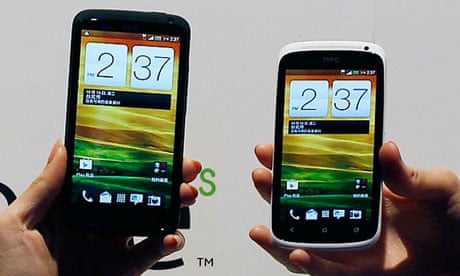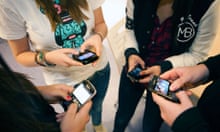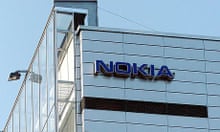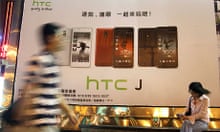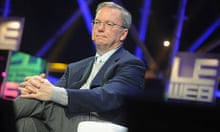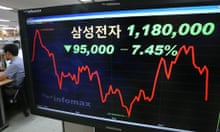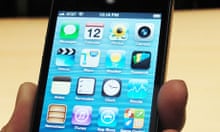In a surprising outbreak of peace in the mobile phone world, Apple and the Taiwanese smartphone maker HTC have halted legal hostilities and signed a 10-year licensing agreement.
Industry sources suggested that HTC may have agreed to pay Apple between $5 (£3.15) and $20 per handset that it produces with Google's Android operating system. HTC said that the deal, which enables the company to use Apple patents on its devices, would not have a material effect on its profit-and-loss account.
HTC was the company that first prompted Steve Jobs to threaten to "go thermonuclear" against Android handsets in 2010. The companies had been suing each other for 32 months in Europe and the US, most notably at the International Trade Commission (ITC), which controls imports of goods into the US. Apple had succeeded last year in temporarily blocking US imports of HTC Android phones, choking its sales, and another ITC ruling in Apple's favour was about to be handed down in the coming weeks.
The deal, announced in a joint statement on Sunday, follows the legal battle between Apple and Samsung concerning patent infringements, which saw Apple secure $1bn in damages in August.
Benedict Evans, smartphones analyst at Enders Analysis, suggested the HTC deal signalled the closing stages of the patent wars in the smartphone market, adding that the per-device licensing payments may put a floor under the prices of Android smartphones in the west. The deal comes amid speculation of a profit warning at HTC, where revenues have plummeted since peaking in September 2011. Quarterly revenues for July to September 2012, at NT$70.2bn (£1.5bn), were 46% down on a year ago, and the company's revenues have returned to the levels seen in mid-2010 before its huge growth driven by sales of Android handsets. In the third quarter of 2011, HTC was the biggest seller of smartphones in the US. "HTC is pleased to have resolved its dispute with Apple, so HTC can focus on innovation instead of litigation," said Peter Chou, chief executive of HTC.
Apple's chief executive, Tim Cook, said he was glad to have reached the settlement and that Apple "will continue to stay laser focused on product innovation".
Carl Howe, vice-president of the Yankee Research group, commented on Twitter: "Cook's Apple is far less litigious than it was under [Steve] Jobs." Jobs in 2010 threatened to "destroy" Android after HTC introduced a handset which he thought used patented Apple methods for zooming into text.
With Apple having been the aggressor, HTC is reckoned to have offered a per-device payment to use Apple's patents in Android handsets. That will be in addition to a similar per-device patent licensing deal HTC made with Microsoft in April 2010, reckoned to be for between US$5 and $10 for every Android handset it ships. Apple and HTC would not disclose details of any payments written into the peace deal.
Microsoft has already signed 14 patent licensing deals with Android handset makers, and Apple was awarded $1bn in damages in August when a California jury decided Korea's Samsung had infringed some of its software and design patents.
"HTC wasn't making phones that looked like the iPhone so a licensing deal was always on the cards, unlike the case against Samsung," said Evans. "Most of the growth in Android sales is coming from cheap $75 to $100 handsets which are replacing featurephones. If you're paying $20 in licensing on those, you've got no margin." Mobile phone patent wars began in August 2007 when the handset maker Motorola banned a Chinese company, Chi Mei, from making a chip for Germany's Infineon. Those chips were being used by Apple in the iPhone. Motorola has since been demanding a separate licence from Apple. It is the only major lawsuit outstanding from Apple.
